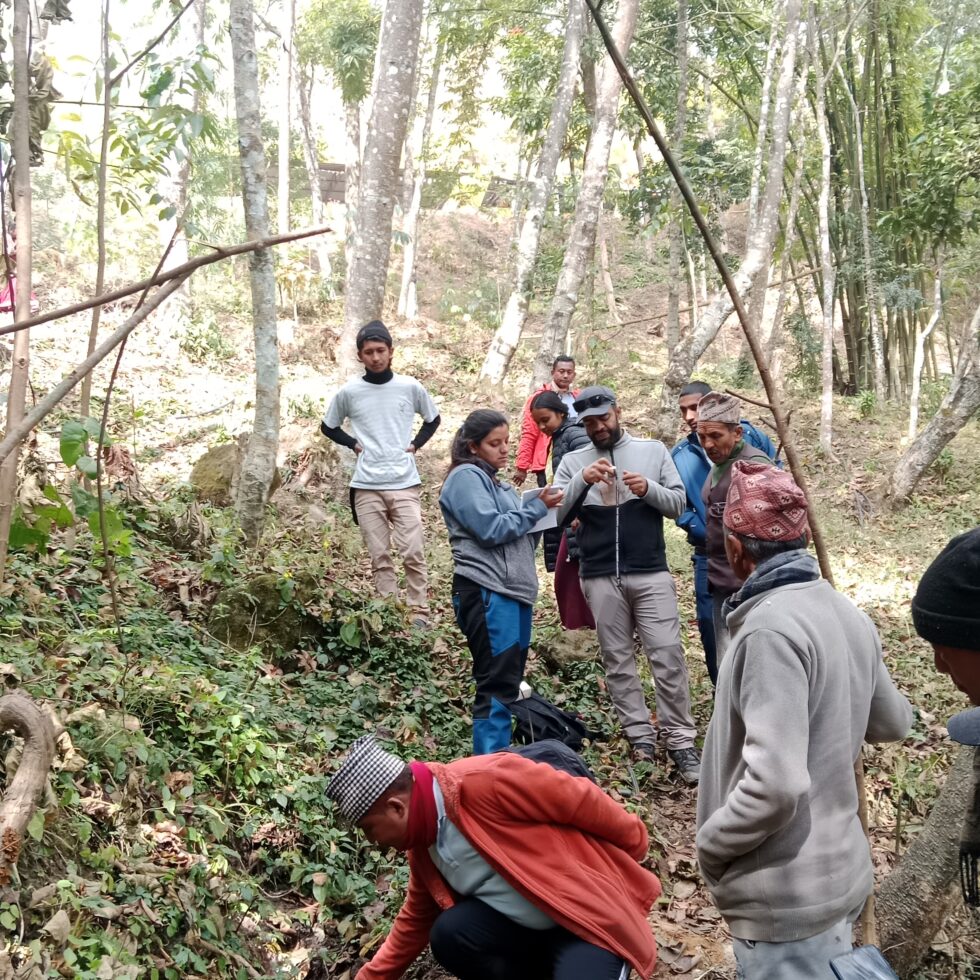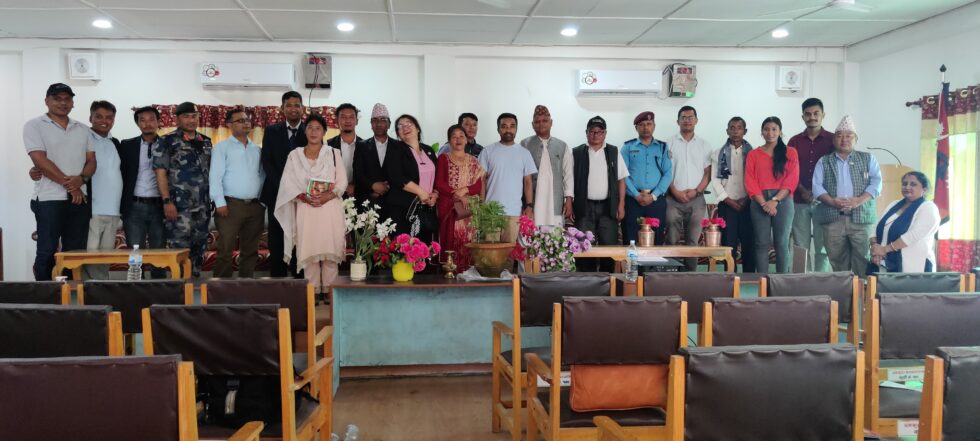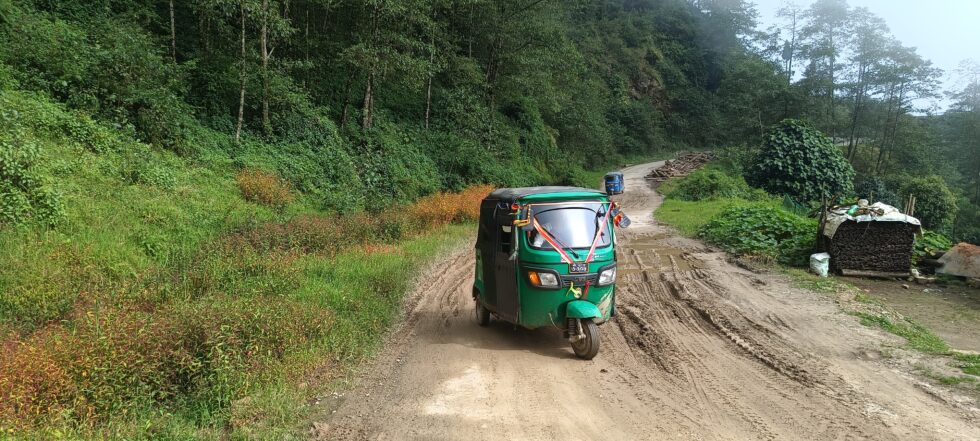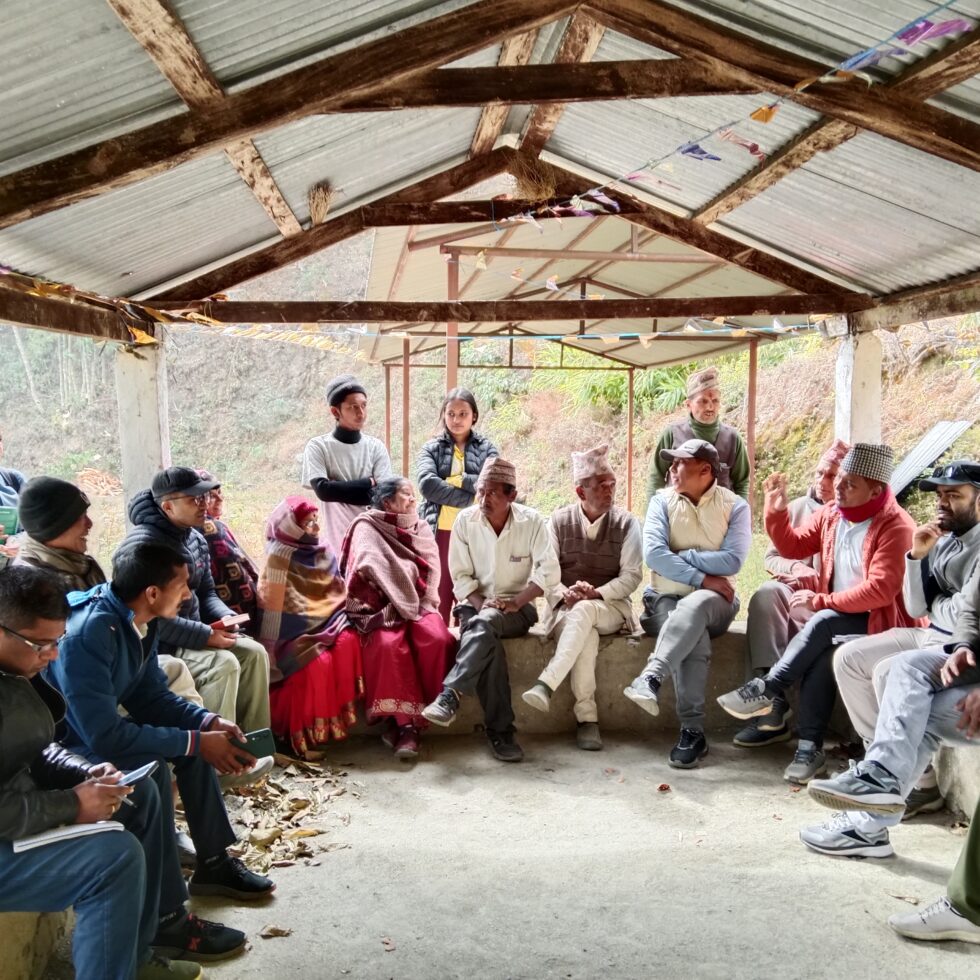
INTRODUCING ROADSIDE SPRING PROTECTION TO IMPROVE WATER SECURITY (ROSPRO)
| Project name | Roadside Spring Protection to Improve Water Security (RoSPro) |
| Project goal: | Protect and enhance natural springs to ensure reliable water supplies and improve road infrastructure. |
| Consortium: | MetaMeta Research, FutureWater and the International Centre for Integrated Mountain Development (ICIMOD) |
| Project type: | Pilot project, July 2023 – June 2025 |
| Subsidy budget: | € 223.638 |
For the first interview of the Innovation in Progress series, we speak to Saroj Yakami and Sanjeev Bhuchar. They are part of the team currently working in Nepal’s mountainous Dhankuta municipality and Chhathar Jorpati Rural Municipality of the Dhankuta district. The project aims to enhance natural springs while at the same time improve road infrastructure in the area.
Saroj is a water resource expert and Country Manager for MetaMeta Research in Nepal. Sanjeev works for the International Centre for Integrated Mountain Development (ICIMOD), managing the interventions on sustainable springs. For the RoSPro project he is responsible for the co-design process, intervention and spring conservation.
We meet over Teams, as they are both in Nepal. During our conversation it becomes clear that this innovative project aims to make a big impact, not only in Dhankuta, but across the Hindu Kush Himalayan (HKH) region.

Hydrogeological Mapping
Innovative approach
Saroj studied International Land and Water Management at Wageningen University. He joined MetaMeta Research in 2014 where he became involved in the Green Roads for Water initiative. “Roads affect how water flows, but water also affects roads. Most road damages are due to water. By reimagining roads as tools for landscape improvement we can manage water supplies and increase the lifespan of roads”, explains Saroj. “For the RoSPro project I coordinate the activities in Nepal, focusing on stakeholder collaboration, data collection, impact analysis and co-design processes.”
Making a bigger impact
For ICIMOD and Sanjeev this project is relevant for the entire HKH region, which spans across eight countries. “Nearly 100 million people in the region depend on springs for their water security, of which approximately 10 million in Nepal. Spring water is a lifeline, catering to drinking, domestic, and agriculture needs, but many of these sources are dwindling. This is mostly due to the rapid expansion of road networks, in addition to changes in land cover and climate.
Road development alters the spring’s natural outflow, while rock cutting disrupts the location of spring orifices. For a long time, this problem has largely gone unnoticed, which poses a significant threat to the local communities and their water resources.” In an effort to address both the depletion of springs and the rapid expansion of roads, this project combines the roadside guidelines published by MetaMeta Research and the Department of Local Infrastructure (DoLI) with ICIMOD’s hydrogeology-based spring revival protocol.
Consortium Partners
The consortium is led by MetaMeta Research. Saroj explains: “MetaMeta had been working on roadside spring protection guidelines specifically for local road network in Nepal, as part of the Green Roads for Water initiative. With the intention on integrating our work, we shared our ideas with ICIMOD, as they are experts on spring revival in the HKH region”.
Sanjeev: “For ICIMOD this was very interesting. We had been developing a protocol for spring revival as well as decision support tools for mountain hydrology. Together we could address both problems at once. FutureWater, highly specialized in water management in the HKH context, contributes to the project by creating a digital twin and decision support toolkit. Through the integration of advanced techniques and tools, the project endeavors to secure safe and dependable water provisions for mountain communities while also preserving the quality of road infrastructure and sustaining connectivity”. DoLI will oversee the implementation.
Collaborating with the local community and local partners
Sanjeev: “Our main focus from the start was getting the local community and local government involved, making sure to include women in every step of the process. Promoting gender and social inclusion is an integral part of this project. Women are a vital part of communities, but are rarely in decision making positions. We make a conscious effort to change that”. The bottom-up approach and participatory process was essential for getting the problem recognized and endorsed by local governments. Saroj: “It enabled us to incorporate valuable local knowledge in the Nature-based Solutions, with respect for local traditions”.

Kick-Off workshop with Dhankuta Municipality and Chhathar Jorpati Rural Municipality
In the field
Since the start of the project in July 2023 a lot has been accomplished. Sanjeev begins: “We organized a kick-off to share the objective of the project with different stakeholders and started the process to co-select four roadside springs for piloting. There we conducted a hydro-geological study at field level. With the data from hydro-geological mapping, we were able to create 3D images of the area”.
Saroj adds: “We gathered a large amount of data to use in the co-design process. For example, we held household surveys and explored the area with locals to gather information about water quantity and changes in spring flows among other things. In Focus Group discussions we asked them to draw their own map of the region. This revealed all sorts of interconnections between their water supply and sources, built infrastructure, and other types of land uses. Valuable information that only locals have”.

Understanding how roads are affected by unmanaged roadside springs and vice versa.

Knowing the project area together with communities during Focus Group Discussion

Co-design process: With Community members, Engineers from municipality and local partner HUSADEC for RoSPro implementation.
Next step
Saroj is excited about the next phase: “At this moment, we are in the process of finalising the co-design process for the measures for improvements of both springs and roads to be implemented in four pilot sites by May 2024. We have a short time frame before the monsoon starts.”
Innovation in progress series
During the Partners for Water programme 2022 – 2027, several projects that received the Partners for Water subsidy will be followed from start to finish. Over the next few years, they will take you with them on their transformative journey. You’ll be able to gain insights into their promising solutions, innovative processes and collaborations with local partners, as well as their struggles, challenges and valuable lessons learned. Stay tuned and follow their journey through the Partners for Water website and our LinkedIn page!